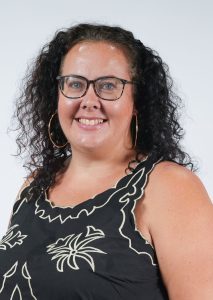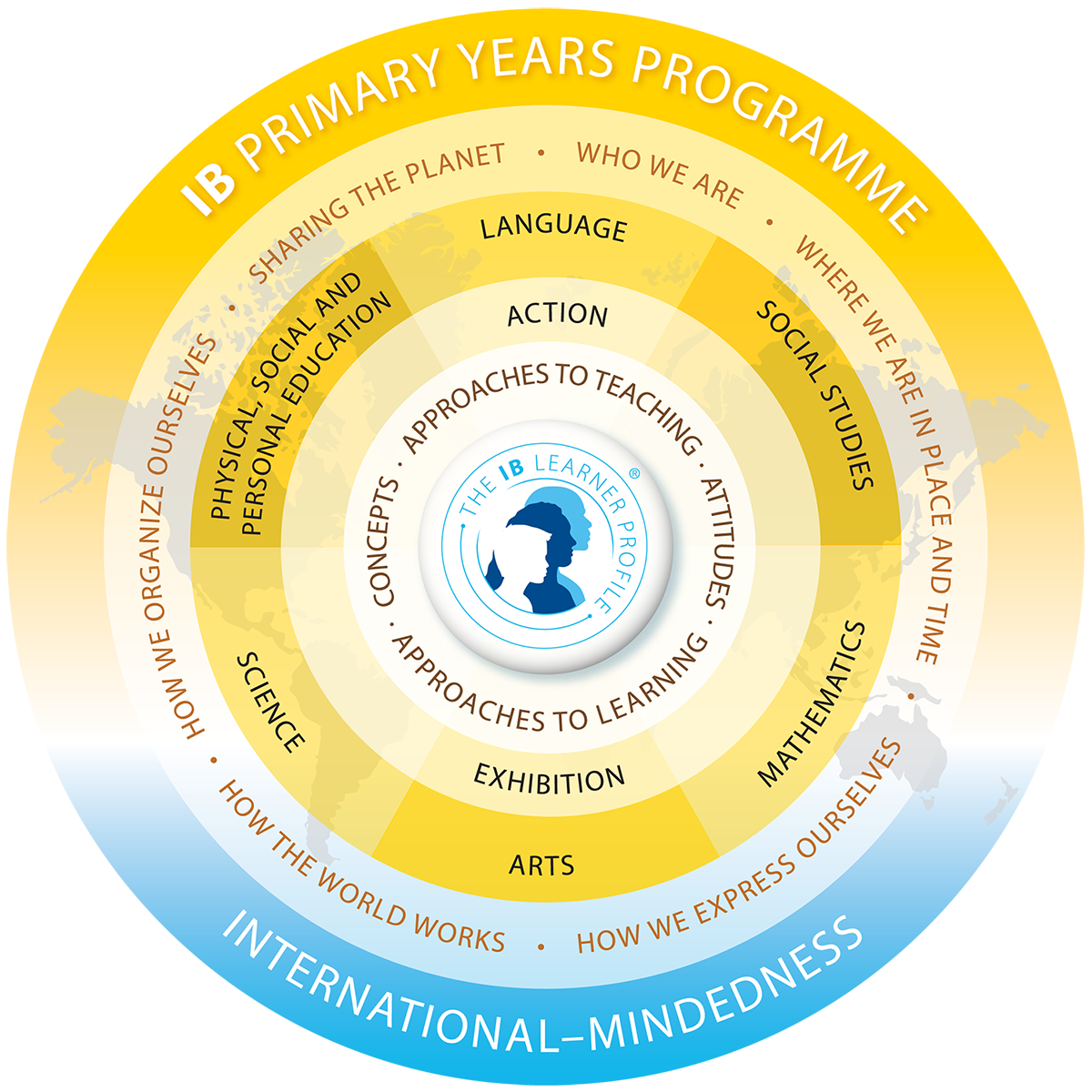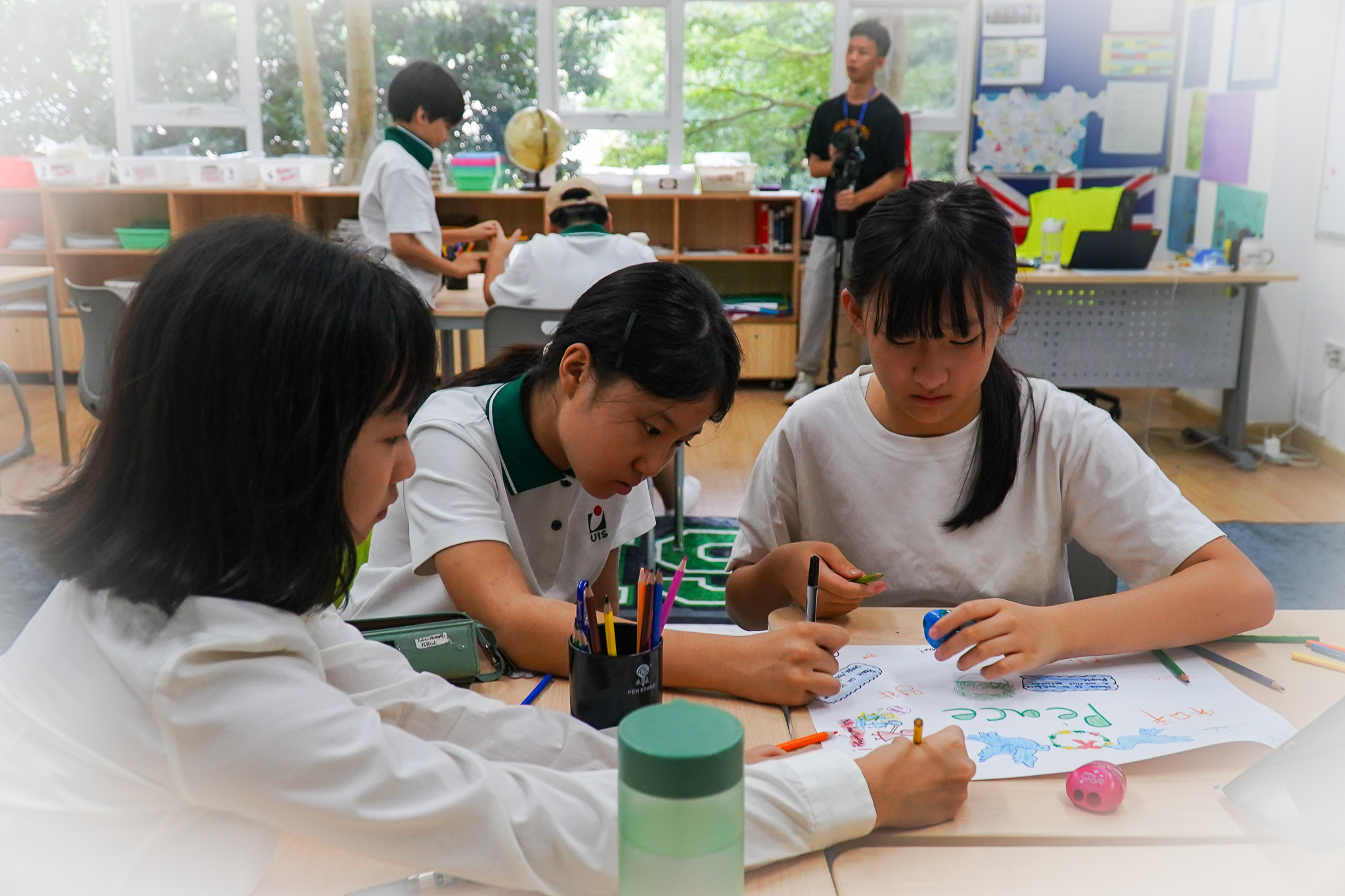At Utahloy International School Guangzhou (UISG), we are authorized by the International Baccalaureate Organization (IB) to teach the Primary Years Programme (PYP). The PYP is a framework designed by the IB through which we deliver the curriculum. It is inquiry-based, driven by the questions teachers and students generate. Our Early Years to Year 6 students are encouraged to be active learners, to stretch their thinking by asking questions that deepen their understanding of a concept or skill, and to apply their learning to take action and make a difference in our local and global communities.
PYP Programme

AN INQUIRY-BASED PROGRAMME
Driven by Curious Minds
CONTACT US

Amy Flanaghan
PYP Coordinator
PYPCoordinator@uisgz.org

The Principles
A unique feature of the PYP is the transdisciplinary nature of the programme. Wherever possible, knowledge and skills associated with social studies, science, literacy, math, arts, design thinking, and computational thinking are integrated into our Programme of Inquiry (POI). From Grade 1 to 5, students engage in six units of inquiry each year and four to five units of inquiry in Kindergarten. This provides the time to learn new concepts and engage in meaningful play. The POI is reviewed annually to ensure alignment with curricular expectations and consistency across and within the grades. Standalone instruction in specific literacy and math skills also plays a part in our balanced programming, ensuring students are set up for success by providing solid foundational skills.
The Programme Components
Our Language Acquisition program features English and Chinese in the PYP from Kindergarten to Grade 5, except for those students participating in the Mother Tongue Language Programmes: French, German, Chinese, Korean, and Japanese. Specialists teach our physical and health education, art, and music and are a regular part of a student’s weekly timetable. At the end of Grade 5, the family decides which language the student will continue to learn in MYP.
Learner Agency

PYP students with agency use their initiative and take responsibility and ownership of their learning. They direct their knowledge with a strong sense of identity and self-belief and, in conjunction with others, build a sense of community and awareness of the opinions, values, and needs of others. The PYP creates opportunities for students to take the initiative, express interest and wonderings, and make choices.
Learner Profile

The attributes of the learner profile represent a broad range of human capacities and responsibilities that encompass intellectual, personal, emotional, and social growth. The development and demonstration of these attributes are foundational to students becoming internationally minded, active, and caring community members who respect themselves, others, and the world around them. IB learners strive to become inquirers, knowledgeable, thinkers, communicators, principled, open-minded, caring, risk-takers, balanced and reflective.
Action

Action, the core of student agency, is integral to the Primary Years Programme (PYP) learning process and the programme’s overarching outcome of international-mindedness. Through individual and collective action, students understand the responsibilities of being internationally minded and appreciate the benefits of working with others for a shared purpose. Action takes place when children engage in their learning such that they initiate a purposeful response within or beyond the curriculum.
Action could be:
- a change in attitude
- a consideration or plan for action in the future
- a demonstration of responsibility or respect for self, others, and the environment
- a commitment to leading or participating in a youth advocacy group
- an engagement in school decision-making or an expression of support in community, local, and global decision-making.
Action might come from participation, advocacy, social justice, social entrepreneurship, or life choices.
PYP Exhibition

In the PYP exhibition, students demonstrate their understanding of an issue or opportunity they have chosen to explore. Through the exhibition, students demonstrate their ability to take responsibility for their learning – and their capacity to take action – as they are actively engaged in planning, presenting, and assessing learning. The exhibition is a powerful demonstration of student agency and the agency of the community that has nurtured them through their years in the PYP.




